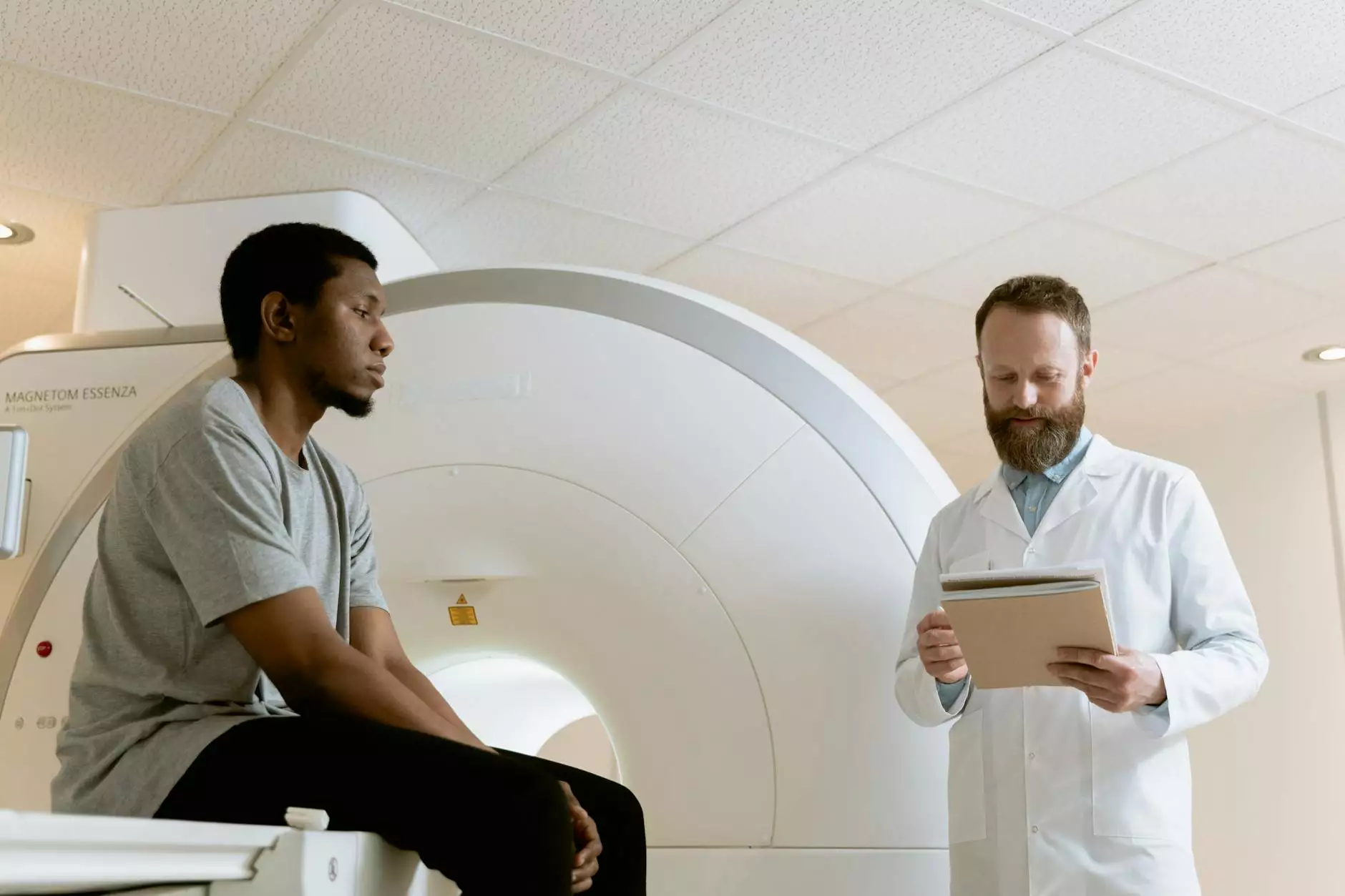CT Scan for Lung Cancer: Understanding Its Importance in Diagnosis and Treatment

Lung cancer continues to be a leading cause of cancer-related mortality worldwide. Early diagnosis significantly enhances the chances of successful treatment and survival. In this light, CT scans for lung cancer have emerged as a crucial tool in the medical field for accurate diagnosis and monitoring. In this article, we delve deep into the role of CT scans in lung cancer, the procedure itself, its benefits, and the ongoing advancements that make it a cornerstone in the realm of cancer treatment.
What is a CT Scan?
A Computed Tomography (CT) scan is a sophisticated imaging technique that utilizes X-ray technology to create detailed cross-sectional images of the body. Unlike standard X-rays, CT scans provide more comprehensive visuals that allow physicians to see the internal structure of organs, tissues, and bones.
CT imaging can be performed on various body parts, but its application in diagnosing lung cancer is particularly vital due to its high sensitivity and specificity in detecting abnormalities within lung tissue.
Why is a CT Scan Essential for Lung Cancer Diagnosis?
Diagnosing lung cancer at an early stage is critical for successful treatment. Here are several reasons why a CT scan for lung cancer is deemed essential:
- High Sensitivity: CT scans are more sensitive than traditional X-rays, allowing for the detection of smaller nodules and early-stage tumors.
- Comprehensive Imaging: They provide detailed images that can help differentiate between benign and malignant nodules.
- Staging of Cancer: CT scans play a pivotal role in determining the stage of lung cancer, which is essential for planning treatment.
- Monitoring Treatment Response: Following treatment, CT scans are used to evaluate how well the cancer is responding to therapy.
- Guiding Biopsies: In cases where further testing is necessary, CT imaging can guide the needle for a biopsy, allowing for precise tissue sampling.
The CT Scan Procedure: What to Expect?
Understanding the CT scan process can alleviate anxiety for patients. Here’s a step-by-step guide of what to expect during a CT scan for lung cancer:
1. Preparation
Patients are usually advised to wear loose-fitting clothing and may be asked to remove metal objects such as jewelry that could interfere with imaging. In some cases, a contrast dye may be administered to enhance the images.
2. The Scanning Process
During the scan, patients lie on a motorized table that slides into the CT machine. It’s crucial to remain still while the machine captures multiple images from various angles. The entire process typically lasts between 10 to 30 minutes.
3. After the Scan
Once completed, patients can usually resume daily activities right away. A radiologist will review the images and send a report to the referring physician, who will discuss the results with the patient. Depending on the findings, further actions may be needed, such as additional imaging or biopsies.
Benefits of Using CT Scans for Lung Cancer
CT scans provide an array of benefits that are particularly relevant in the fight against lung cancer:
- Early Detection: CT scans can identify lung cancer at its earliest stages, leading to more successful treatment outcomes.
- Reduced Need for Invasive Procedures: With advanced imaging, many patients may avoid unnecessary surgeries.
- Accurate Treatment Planning: The detailed imaging from CT scans allows for tailored treatment plans, enhancing effectiveness.
- Long-term Monitoring: Regular CT scans can help detect recurrences early, improving long-term survival rates.
- Non-Invasive: Compared to exploratory surgeries, CT scans are a safer, non-invasive alternative to gather critical information.
The Role of Hellophysio.sg in Lung Cancer Treatment
At Hellophysio.sg, we are committed to providing comprehensive support for patients dealing with lung cancer. Our offerings include not only access to diagnostic imaging but also post-diagnosis rehabilitation and physical therapy options. Our multidisciplinary team collaborates closely to ensure that patients receive holistic care tailored to their individual needs.
1. Health & Medical Support
We prioritize patient education, helping individuals understand their diagnosis and the significance of CT scans in their treatment journey.
2. Sports Medicine and Rehabilitation
Our specialized sports medicine team is skilled in designing exercise programs that enhance recovery, improve lung function, and maintain overall health during treatment.
3. Physical Therapy Services
Physical therapy can be vital for lung cancer patients, especially those recovering from surgery or chemotherapy. Our physical therapists focus on respiratory therapies that promote better lung function and overall wellness.
Technological Advancements in CT Scanning
The field of medical imaging, particularly CT scanning, is rapidly advancing. Here are some technological innovations that are enhancing the effectiveness of CT scans for lung cancer:
- Low-Dose CT Scans: These scans significantly reduce radiation exposure while maintaining image quality, making them ideal for screening high-risk populations.
- Artificial Intelligence (AI): AI algorithms are increasingly being integrated into CT imaging, improving the accuracy of nodule detection and reducing the rate of false positives.
- 3D Imaging: Innovations in creating three-dimensional reconstructions from CT data provide more comprehensive insights into the lung structure, aiding in both diagnosis and treatment planning.
Conclusion: The Vital Role of CT Scans in Lung Cancer Care
In conclusion, the role of CT scans for lung cancer cannot be overstated. They represent a revolutionary development in the early detection, diagnosis, and management of lung cancer. Understanding the importance of CT scans propels patients towards informed decision-making in their cancer journey.
At Hellophysio.sg, we are proud to be at the forefront of health and medical services, offering our patients not only advanced imaging solutions but also exceptional support in their battle against lung cancer. Our commitment to holistic care ensures that patients receive the finest treatment tailored to their unique circumstances.
As we continue to innovate and integrate cutting-edge technology into our services, we remain dedicated to improving the lives of those affected by lung cancer, paving the way for brighter, healthier futures.








